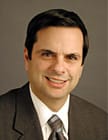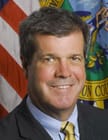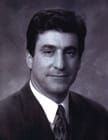2009-2010 Daniel Rose Fellows
ULI Daniel Rose Center for Public Leadership in Land Use has named 16 outstanding community leaders to serve in fellowships for the Center through 2010. The purpose of the fellowship program is to provide city leaders with the insights, peer-to-peer learning, and analysis they need to successfully build and sustain their cities.
The fellowships will provide a year-long forum to help the four mayors and their teams address the most challenging land use issues facing their communities. Over the upcoming year, each city’s team will work with leading experts in the real estate development, finance, and land use fields with the intention of tackling complex land use issues facing each community.
Meet the Fellows
Phoenix |
Minneapolis |
Nashville |
Philadelphia |
|
Mayor Phil Gordon |
Mayor R.T. Rybak |
Mayor Karl Dean |
Mayor Michael Nutter |
|
Wes Gullett
|
Barbara Sporlein
|
Rick Bernhardt
|
Alan Greenberger
|
|
Mark Winkleman
|
Gary Schiff
|
Bert Mathews |
Beverly Coleman |
|
Debra Stark |
Steve Kotke |
Alexia Poe |
Michael DiBerardinis |
The Land Use Challenges
Here are summaries of the challenges selected by the four cities.
Minneapolis: The Twin Cities have an emerging multi-modal regional transit system with Minneapolis at the center of the system. Each transit corridor is very different in terms of existing land uses and placemaking, governance structure and barriers to redevelopment. The City, along with its many public and private partners, has undertaken several steps to implement its TOD plans. There have been some success but we clearly have not yet achieved our vision. The Minneapolis Daniel Rose Fellows wish to investigate current strategies and develop an approach that leverages current investments to achieve infrastructure development goals. Read more.
Nashville: Nashville’s unusual wheel-and-spoke street pattern reflects the city’s early history as a regional center with connections to surrounding towns. To date, Nashville has utilized planning and zoning strategies to reinvigorate its corridors, and is interested in evaluating these tools and considering additional tools such as capital investments and economic development strategies. Nashville will focus on two such corridors – 4th Avenue South and 8th Avenue South – as transferable models. Read more.
Philadelphia: The project area is a two-plus mile stretch of city that starts at City Hall at the very center of Philadelphia, and proceeds north along Broad Street to Temple University. The North Broad Street Corridor is characterized by vacant land and buildings and high poverty, but also redevelopment, strong institutions and, critically, an excellent transit infrastructure. The Philadelphia Daniel Rose Fellowship team wish to develop an approach to create redevelopment momentum along North Broad Street. Read more.
Phoenix: In 2003, Phoenix adopted a Transit-oriented Development (TOD) Overlay anticipating the development of our light rail system. The purpose of the overlay was to encourage development characterized by a mix of uses surrounding a transit station that cater to the pedestrian. The overlay was placed on property a quarter mile on either side of the light rail route with the exception of the route traveling through the downtown core. Phoenix would like to re-evaluate the TOD overlay in light of a green corridor proposal, understand what incentives work, and develop additional ideas to promote the green corridor. Read more.















